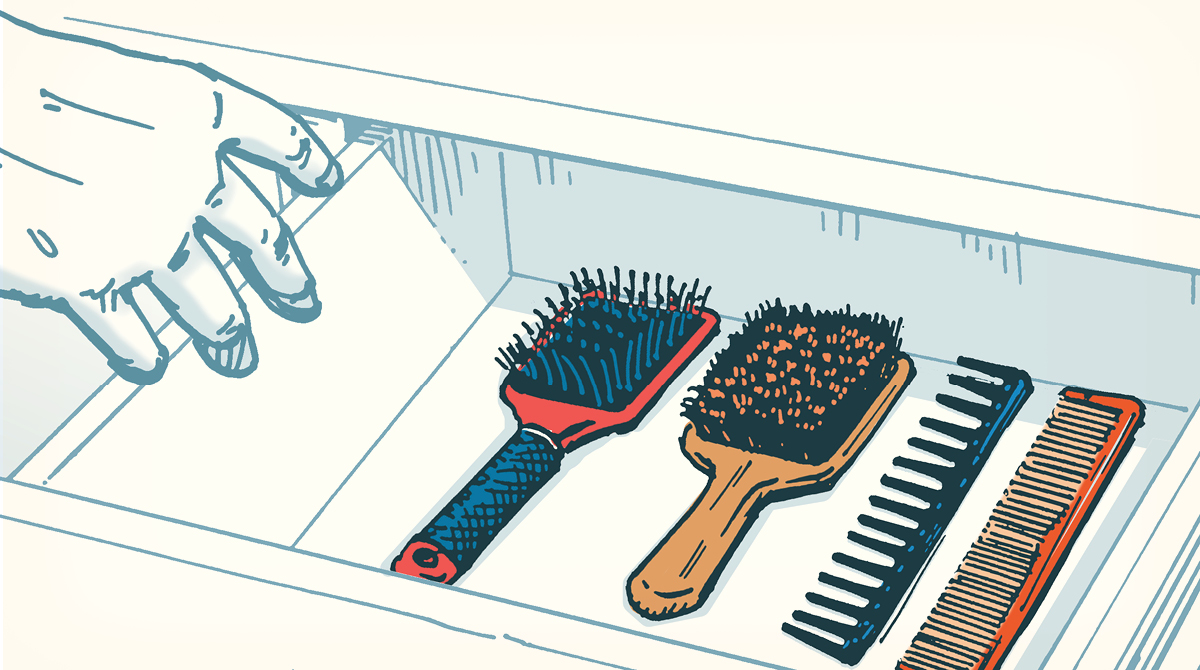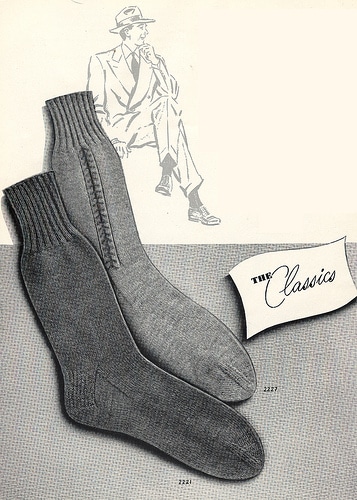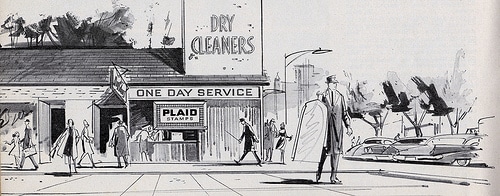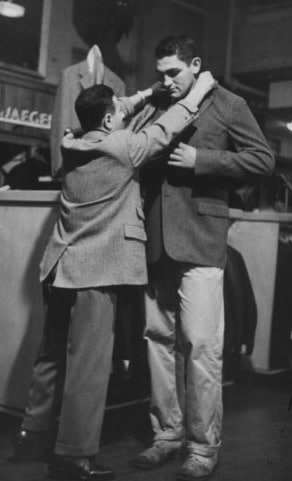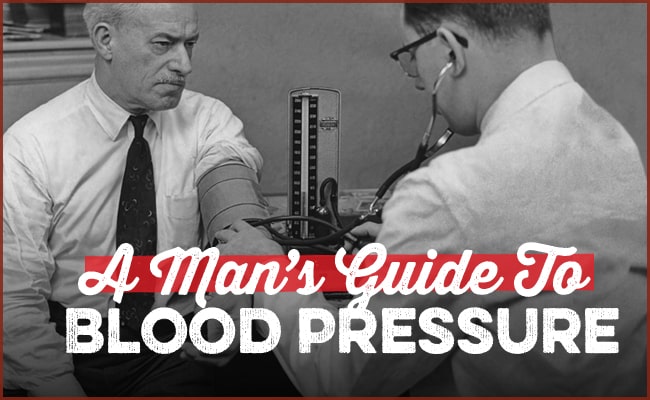
I didn’t think about my blood pressure in my 20s and 30s. I only noted it when it got checked during urgent care visits. I always thought it was something I’d worry about when AARP sent me a welcome letter.
While I’m not quite ready for senior discounts, I’ve entered middle age and have become more interested in preventive health.
One health metric I’ve started to track regularly is my blood pressure, which I measure once a week.
Why?
Well, blood pressure is a key indicator of long-term health, and it’s worth monitoring when you’re younger and not just when you’re officially elderly.
High blood pressure, or hypertension, often has no symptoms. It’s a silent killer. Left unchecked, it damages your arteries and organs until it announces itself with a heart attack, stroke, or kidney disease.
Based on the stats, nearly half of you reading this article have high blood pressure.
That’s the bad news.
The good news is that there’s a lot you can do to keep your blood pressure healthy with straightforward lifestyle changes. If you need medical backup, modern treatments are effective and widely available.
In today’s article, I’ll cover blood pressure, its health importance, what raises it, and practical steps to keep it in check.
What Is Blood Pressure?
Think of blood pressure as the force your blood exerts against your artery walls every time your heart pumps. When your heart beats, it creates a surge of pressure called systolic pressure — the top number on a blood pressure reading. When your heart relaxes between beats, the pressure drops; that’s diastolic pressure, the bottom number.
So if you’re 120/80, the 120 is how hard the blood is pushing during a heartbeat, and the 80 is the pressure while your heart rests.
The American Heart Association defines a healthy adult blood pressure as below 120/80. Here’s the full list of blood pressure benchmarks and diagnoses:
- Normal: <120/80
- Elevated: 120–129/ <80
- High blood pressure (Hypertension, Stage 1): 130–139/80–89
- High blood pressure (Hypertension, Stage 2): ≥140/≥90
- Hypertensive crisis (medical emergency): >180/ >120
If your systolic stays in the 120s, you’re not hypertensive but “elevated.” It’s like a diagnosis of prediabetes.
A systolic above 130 means a hypertension diagnosis.
The 120 vs. 140 Debate
For years, 140/90 was the hypertension diagnosis line. In 2017, the American Heart Association and American College of Cardiology lowered it to 130/80, labeling anything above 120/80 as “elevated.”
The change was controversial. Overnight, millions of people who’d been told their blood pressure was “fine” were suddenly borderline hypertensive. Critics said it over-medicalized healthy individuals in their 20s–40s, making more of them eligible for drugs.
Supporters countered that risk doesn’t suddenly appear at 140/90; it rises gradually. Lowering the threshold aimed to encourage earlier awareness and lifestyle changes, not just more prescriptions.
Different groups still disagree: European societies and the World Health Organization continue to use 140/90 as the benchmark for diagnosing high blood pressure.
Think of blood pressure as a continuum. Lower is better over time. If your blood pressure is slightly elevated, don’t panic, but don’t ignore it either. Take it as a nudge to tighten your habits.
Why Healthy Blood Pressure Matters
High blood pressure has earned the nickname “the silent killer” for a reason. You usually feel fine, until you don’t. Here’s what uncontrolled hypertension does behind the scenes:
- Heart disease and heart attacks. Chronically high blood pressure stiffens arteries and forces your heart to overwork. Heart disease is the number one killer of men in America, and high blood pressure is a main culprit.
- Stroke. Hypertension weakens brain blood vessels, leading to clots or ruptures — strokes that leave you debilitated or dead.
- Kidney damage. Your kidneys rely on tiny blood vessels to filter waste. High pressure scars them over time, leading to kidney disease or failure.
- Sexual health. High blood pressure is bad for your boners. Erectile dysfunction not only impacts your sex life but is also linked to hypertension and can serve as an early warning sign of cardiovascular trouble.
Common Causes of High Blood Pressure
Hypertension usually stems from a mix of genetics, aging, and lifestyle. Some factors can’t be controlled; others can be. Here are the main factors for men:
- Age. Arteries naturally stiffen with age, and plaque builds up. Expect blood pressure to rise in your 30s and 40s if you’re not proactive.
- Being male. Men get hit earlier than women. After menopause, women catch up, but until then, men lead in hypertension rates.
- Family history. If your parents had high blood pressure, you’re more likely to develop it too.
- Diet. Too much sodium (from processed and restaurant foods) and not enough potassium (from fruits and veggies) is a recipe for high blood pressure.
- Inactivity. Sedentary lifestyles weaken hearts and stiffen arteries.
- Excess weight. The heavier you are, especially around the middle, the harder your heart has to pump.
- Alcohol. Occasional drinks don’t have a big impact, but consistent heavy drinking raises blood pressure.
- Nicotine. Whether from cigarettes or Zyn, nicotine raises blood pressure by stimulating adrenaline release, which increases heart rate and constricts blood vessels.
- Stress. Chronic stress keeps your system revved up, nudging blood pressure higher.
- Poor sleep (and sleep apnea). Less than 7 hours a night — or untreated sleep apnea — can keep your pressure elevated.
Managing Blood Pressure: Lifestyle Strategies
The encouraging news about blood pressure is that lifestyle changes can have a huge effect on it, often enough to avoid or delay medication. Here are the big levers you can pull to keep your blood pressure in check:
- Dial in your diet. Cut back on processed food and salt; eat more vegetables, fruits, lean proteins, and healthy fats.
- Lift weights. While strength training spikes blood pressure during sets, it lowers it over time by improving heart function and blood vessel health.
- Get in Zone 2 cardio. Aerobic exercise is a powerful lever for lowering blood pressure. Zone 2 cardio strengthens your heart, improves vascular flexibility, and trains your body to use oxygen more efficiently. Aim for 150 minutes a week through walking, cycling, rowing, or jogging.
- Hit the HIIT. High-Intensity Interval Training (HIIT) can also help; short bursts of near-max effort followed by recovery periods give you big cardiovascular benefits in less time. I’m a fan of the assault bike for HIIT.
- Lose weight if needed. Even just a reduction of 5–10% of your weight can improve blood pressure.
- Limit alcohol. No more than two drinks a day. Less is better.
- Quit smoking and Zyn-ing. Every cigarette and nicotine pouch tightens your arteries, spiking blood pressure. Quitting will relax them and reduce blood pressure.
- Manage stress. Exercise, meditation, hobbies, prayer, time outdoors — whatever keeps you from running in the red zone all the time.
- Get good sleep. Aim for 7–9 hours. If you snore, check for sleep apnea.
- Deep breathing. Slow, controlled nose breathing activates the parasympathetic nervous system, lowering heart rate and blood pressure. Even 5–10 minutes a day of box or diaphragmatic breathing can help.
- Catch some rays. Moderate sunlight exposure helps your body release nitric oxide stored in the skin, which relaxes blood vessels and lowers blood pressure. Research suggests people who spend more time outdoors have fewer heart problems than those who stay indoors. Aim for regular, sensible sun exposure.
- Cut back on caffeine (if you’re sensitive). Coffee affects people differently. For some men, it barely moves the needle; for others, it can spike blood pressure for hours. If you notice big jumps after an energy drink or espresso, scale back.
- Stay hydrated. Staying hydrated helps your kidneys balance sodium and maintain blood volume, supporting healthy blood pressure. Dehydration makes your heart work harder and can spike stress hormones.
- Spend time in nature. Japanese research on shinrin-yoku (forest bathing) shows that being in green, natural environments lowers stress hormones and blood pressure. Follow the 20-5-3 nature prescription!
- Check your numbers. Regularly track your blood pressure. Aim for once a week. See below on how to do it.
How to Take Your Blood Pressure at Home
To keep your blood pressure in check, monitor it regularly. At-home, automatic arm-cuff monitors are inexpensive and reliable.
I check my blood pressure once a week on Sundays.
Measuring at home can give you a more accurate reading than at the doctor’s office. A lot of people have “white coat syndrome,” where they get nervous at the doctor’s office and their blood pressure spikes, making it appear they have high blood pressure when they don’t.
Technique matters for blood pressure measurements. A sloppy reading can skew your numbers. Here are the best practices:
- Use an upper-arm cuff. Wrist and finger devices aren’t as accurate.
- Check at the same time. Mornings are best, before caffeine or workouts.
- Sit quietly beforehand. Rest for 5 minutes before taking a reading.
- Posture matters. Back supported, feet flat, arm resting at heart level. I keep my arm on the couch armrest to achieve the arm level height.
- Don’t talk during the measurement. Even chatting can bump your numbers.
- Take two or three readings. Do them a minute apart, then average them.
- Log your results. A written record (or the machine’s memory) shows trends better than one-off numbers.
- Avoid common mistakes. Don’t measure over clothing, after coffee, or right after exercise.
When Lifestyle Isn’t Enough to Lower Blood Pressure
Sometimes, despite doing everything right, your blood pressure stays high. Genetics and age can be stubborn. That’s when medication comes in.
There are several meds out there that lower blood pressure. The most common are thiazide diuretics and ACE inhibitors (like lisinopril).
If your blood pressure remains high despite lifestyle changes, talk to your doctor about medication.
Conclusion
Blood pressure is a scorecard of how hard your heart is working and how healthy your arteries are. Keep your numbers in check, and you’ll drastically reduce your risk of heart attacks, strokes, kidney disease, and even erectile dysfunction. Ignore it, and the silent killer may come calling.
So check your blood pressure. Make the changes you need to make: eat smarter, move more, stress less. If you need meds, take them.
Your heart and overall health will thank you for the effort.


